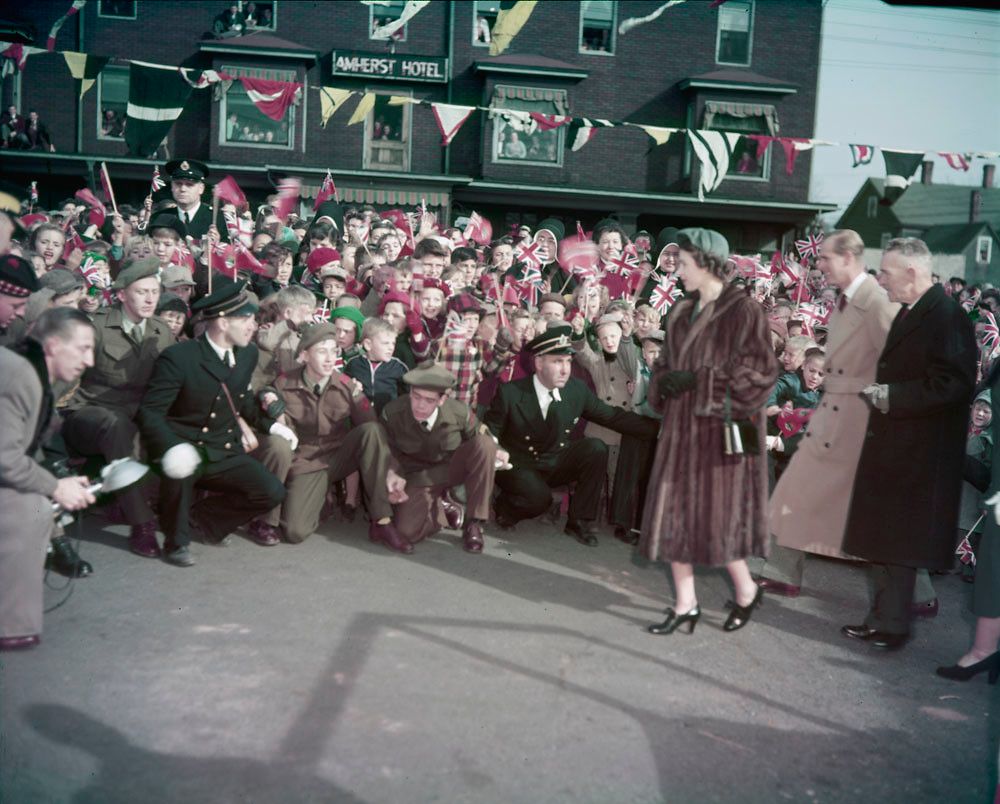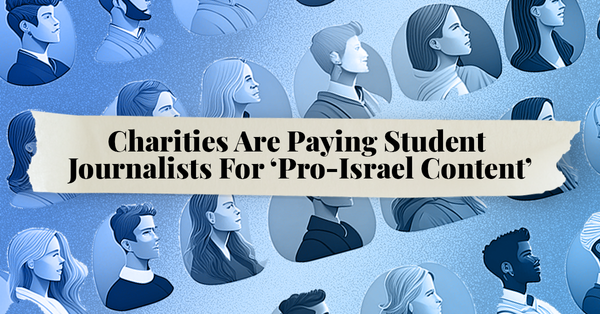Last week, Philip Mountbatten, husband and cousin to Elizabeth Windsor, died.
Immediately afterward, broadcasters in the United Kingdom “cleared [their] schedules,” as the BBC described it, to cover the news. The coverage was apparently so incessant that the BBC alone received more than 100,000 complaints from viewers within a couple days. ITV, meanwhile, saw its audience drop by more than 60 per cent compared to the previous week, with viewers sick of hearing about the dead member of the so-called Royal family.
The coverage hasn’t been much different in Canada. Like any good former colonial subject, our state media and its private counterparts have been happily pumping out praise of Philip since his death, with no sign of stopping. And so, in the spirit of the people in the U.K. who reached out to the BBC — this is the only time you’ll see me liken myself to a Brit, by the way — I’m begging Canadian media to stop talking about Philip.
Western media and political commentators often accuse citizens in socialist countries of being brainwashed by their media, which is deemed to exist for the sole purpose of generating support for leaders. This accusation — which operates on the racist assumption that people in the Global South are mindless drones — serves to distract people here from how much of our media replicates what they accuse others of. And this is never more apparent then when someone like Philip dies.
As Canada’s website helpfully points out, “Canada is a constitutional monarchy […] New Canadians swear allegiance to The Queen, [sic] so do Members of Parliament and the Legislatures, military and police officers […] We swear allegiance to a person who embodies […] our collective values as a people.” The CBC, meanwhile, is government funded, and other media outlets get federal money as well.
So to sum it up: Canada is a monarchy with a Queen as our head of state, and the government of said state provides funding to most major media outlets, either in whole or in part. Media coverage of Philip’s death has reflected that, from what journalists themselves have written, to the voices they’ve chosen to feature.
Some will bristle at this suggestion, and here I think it’s worth remembering an interview Noam Chomsky had with British journalist Andrew Marr on the BBC in 1996 about propaganda. Marr asks Chomsky, “How can you know I’m self-censoring?” Chomsky replies, “I’m not saying you’re self-censoring. I’m sure you believe everything you’re saying. But what I’m saying is if you believed something different, you wouldn’t be sitting where you’re sitting.”
As of April 14, the Toronto Star, Globe and Mail, and National Post published at least 107 articles about Philip online. The CBC, meanwhile, published at least 75 articles and videos online. Here are some headlines from them:
- Prince Philip’s royal rags to riches story, and enduring influence on the monarchy | National Post
- Prince Philip was Queen’s ‘liege man of life and limb’ to the end | Globe and Mail
- Prince Philip was a royal consort like no other | National Post
- For all his flaws, Prince Philip showed men you can put a powerful wife first | Toronto Star
- Canada remembers Prince Philip for his ‘humour … devotion to duty’ | Globe and Mail
- Prince Philip dies at 99: A look back at his royal life | CBC Kids News
- ‘She never looked at anyone else’: The lifelong love match of Prince Philip and ‘Lilibet’ | Toronto Star
- We won’t see the likes of Prince Philip again | Toronto Star
The Canadian journalists selected to write about Philip in a substantive way since his death, particularly for the official obituaries, have been largely uncritical.
Yet having journalists write about their love for Philip isn’t enough. And so, the next step is highlighting the voices of those in power here and around the world, because if they loved Philip, you should too!
Most outlets published compilations of reactions to Philip’s death from current and former world leaders. I looked at these sorts of articles from the Toronto Star, Globe and Mail and Maclean’s.
Here are some of the leaders they printed reactions from: U.K. Prime Minister Boris Johnson; Canadian Prime Minister Justin Trudeau; United States President Joe Biden; Israeli Prime Minister Benjamin Netanyahu; former U.S. President George Bush; Australian Prime Minister Scott Morrison; New Zealand Prime Minister Jacinda Ardern; other “royal” families.
See a trend? This is like running an article about a serial killer and only asking his accomplices for their opinions about him. What you get is a list of allies praising a friend. It’s not only incredibly dull, but serves as propaganda. It reinforces the idea that these countries are the only ones worth listening to, and erases those who have struggled against the British Empire.
And then, of course, the full court propaganda press wouldn’t be complete without trying to pretend the average person in Canada was a fan of Philip as well. This comes in a couple forms.
First, there’s the articles purporting to describe how people in a certain geographical area feel about Philip. Here are some headlines:
- Torontonians remember Prince Philip as a man of empathy | Toronto Star
- Windsorites recall joy and thrill of seeing Prince Philip, remember him as ‘pleasant, kind’ | CBC
- Manitobans remember Prince Philip, royal with ‘zest for life’ who supported youth and research | CBC
- Flags drop, bells toll as Canadians remember special relationship with Prince Philip | Toronto Star
- Saskatchewan residents look back on crossing paths with Prince Philip | CBC
Then, there are the articles published of reader reactions to Philip’s death. Sometimes these are typical letters to the editor, other times they’re compiled from callouts seeking reactions. The Toronto Star published an example of the latter on April 9, under the headline “‘A man with a twinkle in his eye’: Do you have special memories of Prince Philip? The Star wants to hear from you.”
Both sorts of articles share the same feature: they pretend to be the products of organic and spontaneous reactions from the public, but in reality are curated by editors to ensure praise of Philip is the only thing permitted, with the extent of said praise the only varying point.
The Globe and Mail’s April 9 article “Prince Philip: ‘They don’t make ‘em like him any more.’ Globe readers remember the Duke of Edinburgh” is a great example. None of the comments they chose to highlight had any substantive critique of Philip’s legacy. The closest any of them came was saying he was, “A flawed man (like most of us).”
Meanwhile, here are excerpts from some of the comments they did choose to feature: “I was literally trembling at this news”; “In a world of ‘look at me’ and ‘me me me,’ his humility and devotion to his role should be admired”; “Long live our gracious Queen! God save the Queen!”; “The term Renaissance man is rarely used these days because so few of them were left. But Prince Phillip was the ultimate Renaissance man of recent decades.”
In short, Canadian media coverage following Philip’s death has effectively worked to help cement a positive legacy, and in doing so ignored the majority of people, throughout Canada and internationally, who have far less positive things to say about the man and the institution he represents. This coverage has, in fact, effectively portrayed these people as not “real” Canadians, which isn’t exactly a surprise given that praise for the monarchy is literally required to become one.
Some will say the nature of this coverage is because he just died, and it’s disrespectful to speak ill of the dead. Yet as I’ve written before, this may be applicable to an average person, but is certainly not true of the powerful. Criticizing them the day they die is not only justified, but preferable, in part to help combat narratives like the one that has emerged since Philip’s death.
Regardless, this line of reasoning implicitly promises that at some point there will be space in the media to criticize Philip. This is a lie. At first the excuse is that it’s too soon after his death. And then the excuse will be that it’s no longer newsy, so you should move on. The result is the whitewashing of a legacy, and the continued disconnect of Canadian media from Canadians, but a reinforcement of its tendency to serve empire.
So, please do keep this coverage in mind the next time you see Canadians mocking what they think media looks like in socialist countries. And remember that it’s going to be much worse when Elizabeth dies.








Member discussion